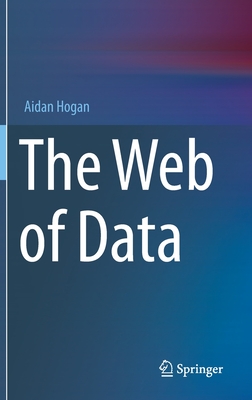Linguistic Linked Data: Representation, Generation and Applications
暫譯: 語言聯結數據:表示、生成與應用
Cimiano, Philipp, Chiarcos, Christian, McCrae, John P.
- 出版商: Springer
- 出版日期: 2020-01-14
- 售價: $6,820
- 貴賓價: 9.8 折 $6,684
- 語言: 英文
- 頁數: 286
- 裝訂: Hardcover - also called cloth, retail trade, or trade
- ISBN: 3030302245
- ISBN-13: 9783030302245
-
相關分類:
Natural Language Processing
海外代購書籍(需單獨結帳)
相關主題
商品描述
The book describes how the LD principles can be applied to modelling language resources. The first part provides the foundation for understanding the remainder of the book, introducing the data models, ontology and query languages used as the basis of the Semantic Web and LD and offering a more detailed overview of the Linguistic Linked Data Cloud. The second part of the book focuses on modelling language resources using LD principles, describing how to model lexical resources using Ontolex-lemon, the lexicon model for ontologies, and how to annotate and address elements of text represented in RDF. It also demonstrates how to model annotations, and how to capture the metadata of language resources. Further, it includes a chapter on representing linguistic categories. In the third part of the book, the authors describe how language resources can be transformed into LD and how links can be inferred and added to the data to increase connectivity and linking between different datasets. They also discuss using LD resources for natural language processing. The last part describes concrete applications of the technologies: representing and linking multilingual wordnets, applications in digital humanities and the discovery of language resources.
Given its scope, the book is relevant for researchers and graduate students interested in topics at the crossroads of natural language processing / computational linguistics and the Semantic Web / linked data. It appeals to Semantic Web experts who are not proficient in applying the Semantic Web and LD principles to linguistic data, as well as to computational linguists who are used to working with lexical and linguistic resources wanting to learn about a new paradigm for modelling, publishing and exploiting linguistic resources.
商品描述(中文翻譯)
這是關於新興領域語言連結數據的第一本專著。該書結合了語言連結數據的背景資訊和具體實施建議,介紹並討論了將連結數據(Linked Data, LD)原則應用於語言資源的表示和發布的主要好處,主張LD並不將單一資源孤立看待,而是尋求創建一個可以一起使用和統一的資源大網絡,從而更充分地利用單一資源。
本書描述了如何將LD原則應用於語言資源的建模。第一部分為理解本書其餘部分奠定基礎,介紹了作為語義網和LD基礎的數據模型、語義網本體和查詢語言,並提供了語言連結數據雲的更詳細概述。書的第二部分專注於使用LD原則建模語言資源,描述了如何使用Ontolex-lemon(本體的詞彙模型)來建模詞彙資源,以及如何註解和處理以RDF表示的文本元素。它還展示了如何建模註解,以及如何捕捉語言資源的元數據。此外,還包括一章關於表示語言類別。在書的第三部分,作者描述了如何將語言資源轉換為LD,以及如何推斷和添加鏈接以增加不同數據集之間的連接性和鏈接。他們還討論了如何將LD資源用於自然語言處理。最後一部分描述了這些技術的具體應用:表示和鏈接多語言詞網、數位人文學的應用以及語言資源的發現。
鑒於其範疇,本書對於對自然語言處理/計算語言學和語義網/連結數據交叉主題感興趣的研究人員和研究生具有相關性。它吸引了不擅長將語義網和LD原則應用於語言數據的語義網專家,以及習慣於處理詞彙和語言資源的計算語言學家,這些人希望了解一種新的建模、發布和利用語言資源的範式。
作者簡介
Christian Chiarcos is an Assistant Professor of Computer Science at Goethe University Frankfurt, and heads the Applied Computational Linguistics group. His research focuses on semantic technologies, including computational semantics as well as the innovative application of Semantic Web standards to NLP problems. He has been co-founder of the Open Linguistics Working Group of the Open Knowledge Foundation (OWLG).
John McCrae is a research lecturer at the Data Science Institute and Insight Centre for Data Analytics at the National University of Ireland Galway, where he leads the Unit for Linguistic Data. This group is focused on the creation, maintenance and application of language resources and other linguistic data. He is the coordinator of the Prêt-à-LLOD project, which aims to make linguistic linked open data ready to use as well as the leader of the linguistic linked open data task in the European Lexicographic Infrastructure (ELEXIS).
Jorge Gracia is an Assistant Professor at University of Zaragoza, where he belongs to the Aragon Institute of Engineering Research (I3A) and to the Distributed Information Systems research group. His current research interests include multilingualism and linked data, cross-lingual matching and information access on the Semantic Web, as well as interoperability of language resources on the Web. He currently leads NexusLinguarum, the "European network for Web-centred linguistic data science" COST Action.
作者簡介(中文翻譯)
菲利普·奇瑪諾(Philipp Cimiano)是比勒費爾德大學的計算機科學教授及語義計算小組的負責人。他的研究專注於知識表示與自然語言處理的交集主題。與本書的其他作者一起,他是最早提出將連結數據技術應用於語言學領域的研究者之一。十多年來,他一直在進行本體學習、使用連結數據的問答系統以及信息提取等主題的研究。他是W3C本體詞彙社群小組的共同主席。
克里斯蒂安·基亞爾科斯(Christian Chiarcos)是法蘭克福歌德大學的計算機科學助理教授,並負責應用計算語言學小組。他的研究專注於語義技術,包括計算語義以及將語義網標準創新應用於自然語言處理問題。他是開放知識基金會(Open Knowledge Foundation)開放語言學工作組(Open Linguistics Working Group)的共同創始人。
約翰·麥克雷(John McCrae)是愛爾蘭國立大學高威的數據科學研究所及數據分析洞察中心的研究講師,他負責語言數據單位。該小組專注於語言資源及其他語言數據的創建、維護和應用。他是Prêt-à-LLOD項目的協調員,該項目旨在使語言連結開放數據隨時可用,並且是歐洲詞典基礎設施(ELEXIS)中語言連結開放數據任務的負責人。
豪爾赫·格拉西亞(Jorge Gracia)是薩拉戈薩大學的助理教授,隸屬於阿拉貢工程研究所(I3A)及分散式信息系統研究小組。他目前的研究興趣包括多語言及連結數據、跨語言匹配和語義網上的信息訪問,以及網絡上語言資源的互操作性。他目前負責NexusLinguarum,即「以網絡為中心的歐洲語言數據科學網絡」的COST行動。











